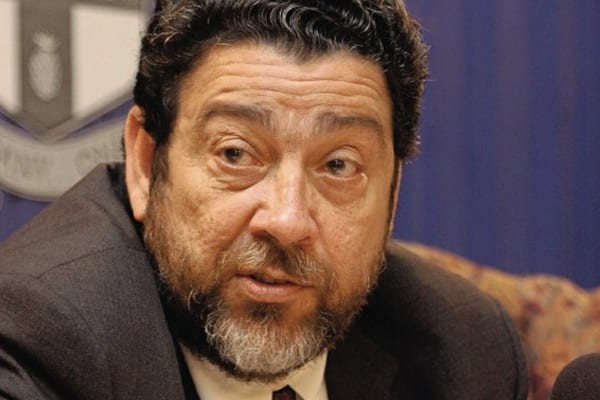(CMC) — Prime Minister Ralph Gonsalves says he has received no indication that the State-owned oil and natural gas company, Petróleos de Venezuela (PDVSA) in Venezuela has suspended fuel shipments to St Vincent and the Grenadines under the PetroCaribe agreement.
He, however, said the country is being affected by the sanctions that the United States has imposed on the Nicolas Maduro Administration in Caracas.
“We have received no such communication, and they would communicate to us is if it were true,” Gonsalves told a press conference in Kingstown on Thursday regarding allegations that the PetroCaribe oil shipments have ceased.
He further said that he contacted the Venezuelan chargé d’affaires in Kingstown, who said he had received no such information.
“This is an era of fake news and all sorts of things,” Gonsalves said.
A report circulated via social media claimed that PDVSA was suspending oil shipments under PetroCaribe to eight countries, namely Antigua and Barbuda, Belize, Dominica, El Salvador, Haiti, Nicaragua, St Vincent and the Grenadines (SVG), and St Kitts Nevis.
The Gaston Browne Government in Antigua and Barbuda also dismissed the report as “fake news”.
During the press conference, Gonsalves admitted the US sanctions began affecting the country as early as last year.
“The impact is for Venezuela, but it has affected us,” he said, adding that so far this year, St Vincent has received two shipments of fuel under the PetroCaribe agreement.
He, however, said the portion of the cost of the fuel SVG is allowed to keep as a long-term, low-interest loan, was just EC$2.4 million.
“Last year, the sanctions started to bite. We had long-term financing of just US$7 million,” he said, adding that this compared to more than US$35 million in 2014
“That’s to give you the way in which the sanctions have affected,” Gonsalves said.
He said the sanctions affect the country because of the way in which the privately owned vessels that transport fuel from Caracas to Kingstown are paid.
“As I understand it, PDVSA has to pay the vessels… through banks. If the money goes through an American corresponding bank or Canadian corresponding bank, they will seize them, because of the sanctions. So they have to find ways to pay them and I know they have been having difficulties finding ways to pay the people to move the fuel.”
Gonsalves said, however, that the country is not expected to experience a fuel crisis because of the development, adding that there are nearly 12,000 barrels of diesel in storage, in addition to 4,000 barrels of gasoline, and a much smaller amount of liquefied petroleum gas.




